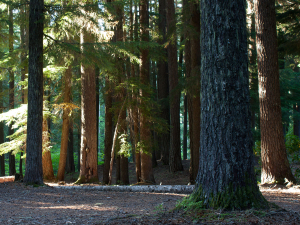$10 cucumbers?
OPINION: The Hound hears John Murphy, chair of Veg NZ, reckons greenhouse vege producers face severe challenges due to changes in the ETS.
 NZIF president James Treadwell says the organisation is ‘troubled’ by recent Government decisions regarding the Emissions Trading Scheme auction settings.
NZIF president James Treadwell says the organisation is ‘troubled’ by recent Government decisions regarding the Emissions Trading Scheme auction settings.
Could current policy decisions see the demise of the forestry industry? That New Zealand Institute of Forestry (NZIF) thinks so.
In an open letter to media and MPs, James Treadwell, president of NZIF says it is ‘crucial’ to bring attention to the cumulative impact of recent decisions.
He says the organisation is ‘troubled’ by recent Government decisions regarding the Emissions Trading Scheme (ETS) auction settings.
Earlier this week, Climate Change Minister James Shaw and Forestry Minister Peeni Henare launched a consultation on changes to the ETS which could see restrictions on how many forestry units are purchased by companies to offset their emissions.
Treadwell says the decision to ignore advice from the Climate Change Commission (CCC) on the issue has already led to a reduced price for units in government auctions, something he says has created a financial burden amounting to $500 million on the government.
“Ignoring the CCC’s advice undermined the potential of forestry to contribute to New Zealand’s climate change targets,” writes Treadwell. “Consequently, we are unlikely to fulfil our commitments, necessitating the costly purchase of overseas units to honour our international pledges, impacting every taxpayer.”
Also of concern, Treadwell says, is the CCC’s draft advice to restrict new planting, which he says seems to be influenced more by political pressure and media coverage than by science.
“These proposed actions swing the pendulum too far, resulting in planting rates falling below the required levels outlined in their own budget,” he says, adding that the failure to meet NZ’s commitments will have significant implications.
“Furthermore, both the National Party and the Labour Party have recently introduced measures which will limit new planting and creates an atmosphere of uncertainty,” Treadwell writes.
In its recently released agricultural emissions policy, the National Party said it would limit the conversion of productive farmland to forestry for carbon farming purposes in a move the party said would protect local communities and food production.
However, Treadwell says these kinds of afforestation limits would lead to reduced planting, below the CCC’s minimum requirements.
“Consequently, we will fail to meet our carbon reduction commitments, requiring additional expenditure on overseas units by the government. Our estimate is the cost to the NZ public for the purchase of units overseas which will no longer be grown here will be around $3.5b over the next 3 years. Money better spent on our education and health vote.”
Treadwell says it is necessary to acknowledge that, while New Zealand should strive for gross emission reductions, the country’s target under the Paris agreement is net emission reductions and this needs to be met in the most cost-effective way possible.
“The current political race to limit forest investment and the supply of forestry carbon credits has been remarkably successful, rendering further action necessary.
“Even if immediate steps were taken to improve forest investor sentiment, it will take years to rebuild trust in stable government policies concerning these issues.”
Voting has started for the renewal of DairyNZ's milksolids levy.
The most successful catchment groups in NZ are those that have 'a source to sea' approach.
Associate Agriculture Minister and Manawatu dairy farmer Andrew Hoggard says the free trade agreement (FTA) negotiated with India is not a bad deal and his party, Act, will support it when it goes before Parliament.
Newly released data from Environment Canterbury (ECan) Farm Environment Plan (FEP) audits are showing a dramatic lift in environmental performance across the region.
A solid recovery of global dairy prices this year makes a $9.50/kgMS milk price almost a shoo-in for this season.
As New Zealand marks the United Nations’ International Year of the Woman Farmer 2026 (IYWF 2026), industry leaders are challenging the misconception that women only support farming.

OPINION: Here w go: the election date is set for November 7 and the politicians are out of the gate…
OPINION: ECan data was released a few days ago showing Canterbury farmers have made “giant strides on environmental performance”.